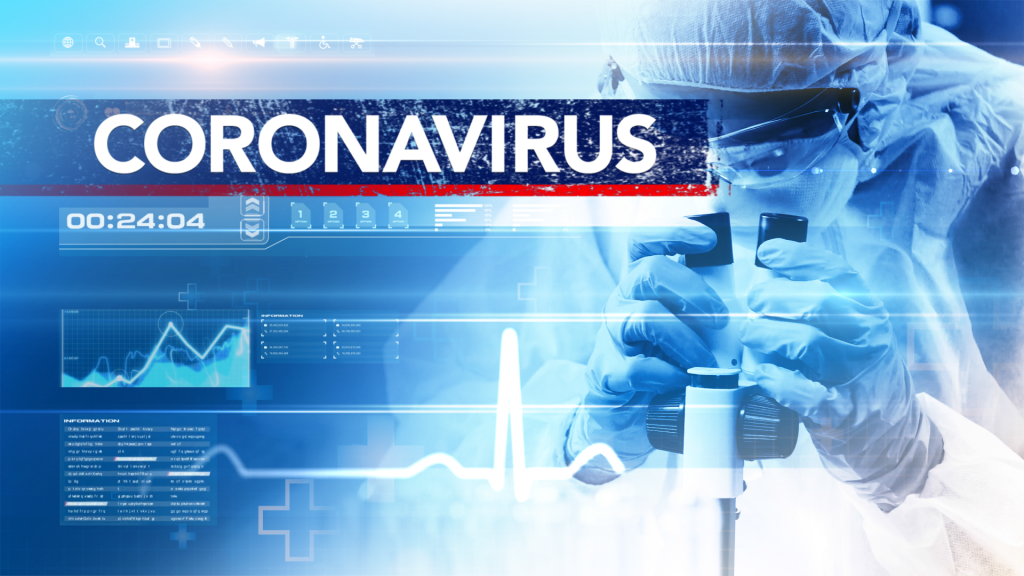CHAPEL HILL – An experimental drug created at a subsidiary of Emory University showed the potential to prevent and treat COVID-19, according to researchers at UNC-Chapel Hill.
The drug, known as EIDD-2801, is being developed by Ridgeback Biotherapeutics in Miami. Ridgeback is a partner of the pharmaceutical giant Merck in the development process. The drug was invented at Drug Innovations at Emory, a wholly owned non-profit biotechnology company at Emory University, according to Ridgeback.
Publishing your work in Nature, scientists at the UNC School of Medicine and the UNC Gillings School of Global Public Health have tested how the orally administered experimental drug stops SARS-CoV-2 replication and prevents infection of human cells in a new one in vivo [in a living organism] model containing human lung tissue.
They found that the drug was extremely effective in preventing and treating SARS-CoV-2 infection. Phase 2 and 3 clinical trials are underway to assess the safety of EIDD-2801 in humans and its effect on viral elimination – when a virus replicates within its body and is released into the environment – in patients with COVID-19.
UNC scientists have created a solution to the problem of mouse models in which coronaviruses do not replicate, creating a line of mice with human lung tissue that includes all primary human cells infected when individuals fall ill with COVID-19.
“We found that EIDD-2801 had a notable effect on virus replication after just two days of treatment – a dramatic 25,000-fold reduction in the number of infectious particles in human lung tissue when treatment was started 24 hours after exposure, ”Said senior author J. Victor Garcia, PhD, professor of medicine and director of the International Center for the Advancement of Translational Science. “Virus titers were significantly reduced by 96% when treatment was started 48 hours after exposure.”
Next, the researchers tested the ability of EIDD-2801 to prevent SARS-CoV-2 infection by administering the drug 12 hours before exposure to SARS-CoV-2 and every 12 hours after that.
“Notably, we found that pre-exposure prophylaxis EIDD-2801 significantly inhibited SARS-CoV-2 replication – reducing virus titers in human LoM lung tissues by more than 100,000 times in two independent experiments,” said the co. – author Angela Wahl, PhD, assistant professor of medicine and assistant director of the International Center for the Advancement of Translational Science.
Bats are the purported source of SARS-CoV-2 and the highly pathogenic human coronaviruses SARS-CoV and MERS-CoV, all of which have emerged in the human population over the past two decades.
“We show that LoM allows for at Vivo study of all human coronaviruses recently emerged on a single platform, ”said co-author Lisa Gralinski, PhD, assistant professor of epidemiology. “Our model allows researchers to directly compare infection between human coronaviruses and the effectiveness of potential preventive and therapeutic approaches.”
Gralinski, added, “We also showed the efficient replication of endogenous bat coronaviruses in human LoM lung tissue without the need for prior virus adaptation, confirming that bats harbor viruses that are capable of directly infecting humans without the need for additional adaptation” .
“Previously, we demonstrated that EIDD-2801 is also effective against SARS-CoV and MERS-CoV infection in vivo and in primary epithelial cultures of the human airways,” said Ralph Baric, PhD, Distinguished Professor William Kenan of Epidemiology at UNC Gillings School of Global Public Health and UNC School of Medicine. “Overall, these results indicate that EIDD-2801 may not only be effective in the treatment and prevention of COVID-19, but it may also be highly effective against future coronavirus outbreaks.”
Other authors are Claire Johnson, Wenbo Yao, Martina Kovarova, Kenneth Dinnon III, Hongwei Liu, Victoria Madden, Halina Krzystek, Chandrav De, Kristen White, Kendra Gully, Alexandra Schäfer, Tanzila Zaman, Sarah Leist, Paul Grant, Frederic Askin, Edward Browne, Corbin Jones and Raymond Pickles, all from UNC-Chapel Hill, and Gregory Bluemling, Alexander Kolykhaloy, Michael Natchus, George Painter from Emory University.
This work was supported by grants from the National Institutes of Health and the North Carolina Coronavirus Relief Fund.
(C) UNC-CH with content contributed by WRAL TechWire
